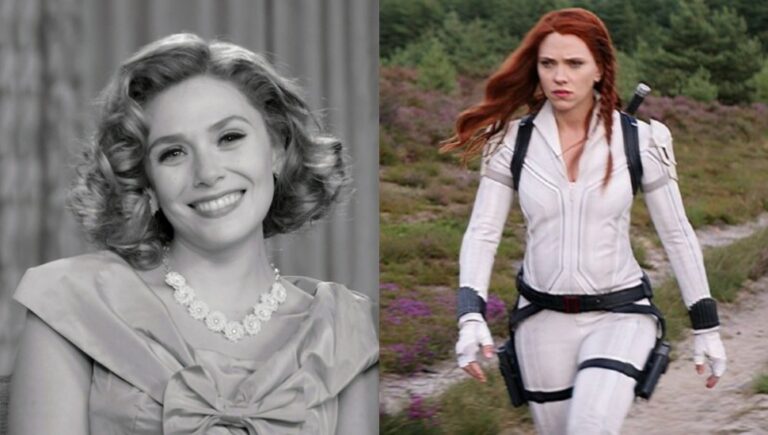Marvel’s WandaVision star, Elizabeth Olsen has recently spoken on her co-star’s lawsuit against Disney+.
In case you missed it, Black Widow star Scarlett Johansson recently filed a lawsuit against streaming platform Disney+ at a California court, claiming that Disney had committed a wrongdoing by adding Black Widow to their streaming platform.
Furthermore, she has claimed that Disney breached her contract by releasing Black Widow on Disney+ at the same time that it was released in movie cinemas.
Now in a new interview with Vanity Fair, Johansson’s Marvel co-star, Olsen has backed her in, saying “I think she’s so tough and literally when I read that I was like, “good for you Scarlett.”
Olsen is not so much as worried about contract-related things (by way of Johansson), but she is worried about how the pandemic has affected the roll-out of movies: both the blockbuster and the smaller scale ones.
She said, “I like going to the movies and I don’t necessarily want to see only an Oscar contender or a blockbuster.”
“I would like to see art films and art house theaters,” Olsen added. “And so I do worry about that, and people having to keep these theaters alive. And I don’t know how financially that works for these theaters.”
Love Film & TV?
Get your daily dose of everything happening in music, film and TV in Australia and abroad.
Johansson’s lawsuit is also a part of a larger narrative, in what is being referred to as “studio streaming wars”, where release dates and days between cinemas and online streaming platforms seem to be competing with each other, rather than complementing each other.
The beginning of the lawsuit reads, “As Ms. Johansson, Disney, Marvel, and most everyone else in Hollywood knows, a “theatrical release” is a release that is exclusive to movie theatres. Disney was well aware of this promise, but nonetheless directed Marvel to violate its pledge and instead release the Picture on the Disney+ streaming service the very same day it was released in movie theatres.”
A Disney spokesperson issued a statement in response to the lawsuit, stating that it is “especially sad and distressing” given the major setbacks creative industries have faced due to the global pandemic.
For more on this topic, follow the Film & TV Observer.



































